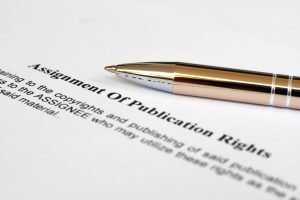Last updated 12/18/20
My fellow narrators and I often contact authors about creating audiobooks of their books. Many times, the author tells me that her publisher has the audio rights, or she isn’t sure who owns them.
Authors could make more money by exercising as many subsidiary rights as possible for each book, especially the audio rights. The audiobook industry is on a 3-year trend of double digit growth that shows no sign of slowing.
If you have your audio rights, you could contract with a narrator or producer to create an audiobook. You also could choose to license your audio rights to a publisher or producer. The trade-off is that you earn more royalties if you retain your rights and contract with a narrator or producer. When you license your rights, your royalty rate is lower because someone else is managing the audiobook production process.
I’m posting this list of links about rights so that more authors can get their books into audio.


- PublishLawyer.com
- UK Society of Authors Guide To Copyright and Permissions
- This site publishes a number of other guides and articles that you will find helpful.
- Authors Alliance Understanding Rights Reversion PDF
- If a publisher has your audio rights, check your contract. It may be a simple process to request the rights are reverted to you, as author Julianna McLean discovered.
- The Creative Penn blog How Authors Sell Publishing Rights with Orna Ross
- Note: I bought the book with the same title but found the coverage on audio rights in chapter 10 to be limited to ACX, Podium Publishing, CD Baby and Author’s Republic, with the emphasis on the author’s costs and royalty rates. Licensing the audio rights to a publisher or producer isn’t discussed.
- The article Securing Audiobook Rights: Rights You Need to Bring Your Audiobook to Market on Jane Friedman’s blog is a good summary.
In addition to managing your own publishing rights, you’ll want to be sure to honor copyrights on others’ works. This Cornell University chart shows copyright terms in the US.
Lyrics and Music
Many authors include popular song lyrics in their books without understanding that they first need to obtain permission from the copyright holder, which may be granted at a cost based on projected sales of the book. This article explains the process of licensing reprints of song lyrics.
The reprint rights are non-transferrable, so they don’t apply to the narrator. Be aware that your narrator will not be legally allowed to sing or say the lyrics of a copyrighted song in the audiobook unless you also obtain a mechanical license, which is an additional permission and expense.
You cannot include copyrighted music in your audiobook without also obtaining a master use license from the copyright owner of the sound recording.
If you want to fully understand the flow of copyright and licensing agreements in music, I highly recommend Harvard Professor William Fisher’s video lecture on this topic.
I’ll continue to add to this page as I discover useful sites. If you know of a helpful site on this topic, please post the URL in a comment. I’ll also be happy to answer any questions.
Hello Karen. So glad to have found your site. I am a fifty-five year veteran of broadcast journalism, production and engineering. Technology was my happy place, until the internet happened.
I’m preparing to narrate my eBook, Might As Well, Can’t Dance!, and have questions. After all those years of being accountable for FCC rules and music licensing, I feel unsure about today’s digital property rights. Such as podcast content. Is it governed by ASCAP and BMI? And, when is an internet stream a podcast? Further, is an eBook the legal equivalent to a podcast? And, what’s an audio book about radio without hearing radio snippets?
I know, too many questions all at once, but that’s the insight I hope to find in your resources. Many thanks for your guidance.
Stephen Atkins
Hi, Stephen! Thanks for the note.
While I’m all-in on audiobooks, I don’t write about podcasts at all. If you want to learn about podcasts, I recommend you subscribe to HotPodNews.com.
Here are my answers to your questions:
ASCAP and BMI only license and collect royalties for music. They pay the royalties to the composers, musicians, and record companies.
Most people get royalty-free music for their podcast intros and outs. This way, they can play the music without obtaining permission and paying fees. I use Storyblocks.com for the music in the intro and outdo of my audiobooks.
If you want to re-use material from a podcast in your audiobook, you’d need to get permission and work out any licensing fees with the podcast producer.
Podcasts usually are recorded episodes of a show that are produced on a regular schedule. A stream can refer to a live, one-time event or a constant program being broadcast over the net. Many AM/FM radio stations stream their content online.
No. An ebook is a digital book with words printed on its virtual pages. It looks like a physical book except it can only be read by a computer or other device. Content in a podcast is spoken.
An audiobook about radio would be more interesting to listeners if the audiobook contained the actual radio snippets. Unfortunately, sound recordings have (in my mind) a ridiculously long copyright term. See the section on sound recordings on this Cornell University page. The Fair Use standard is a slippery slope. To re-use copyrighted radio snippets in your audiobook, you and/or your attorney would need to negotiate the usage and any license fees with the copyright owner.
I hope this info helps you. Best wishes for your success!
Karen
Thanks very much Karen. I appreciate your thoughtful contribution.
-Stephen